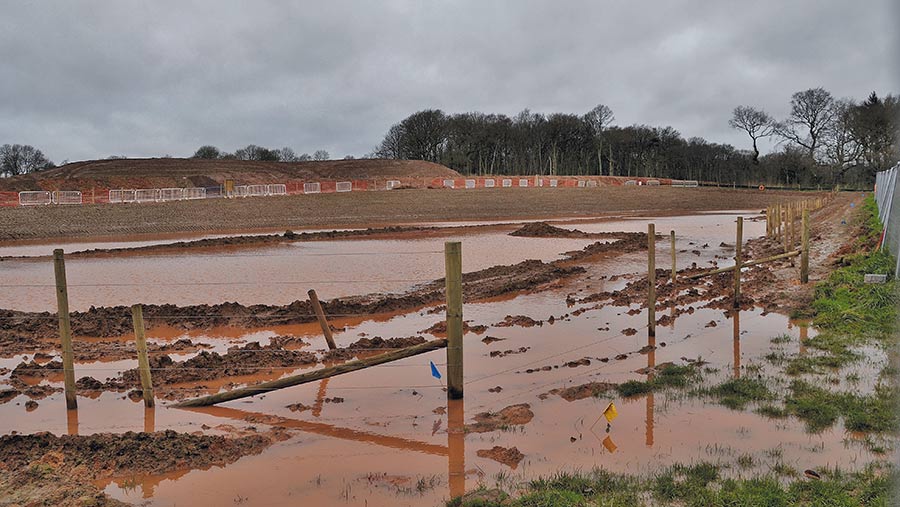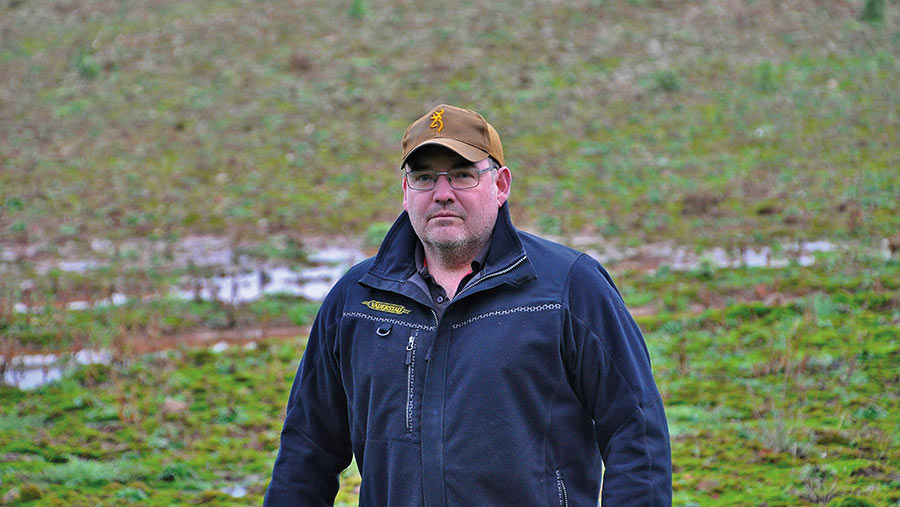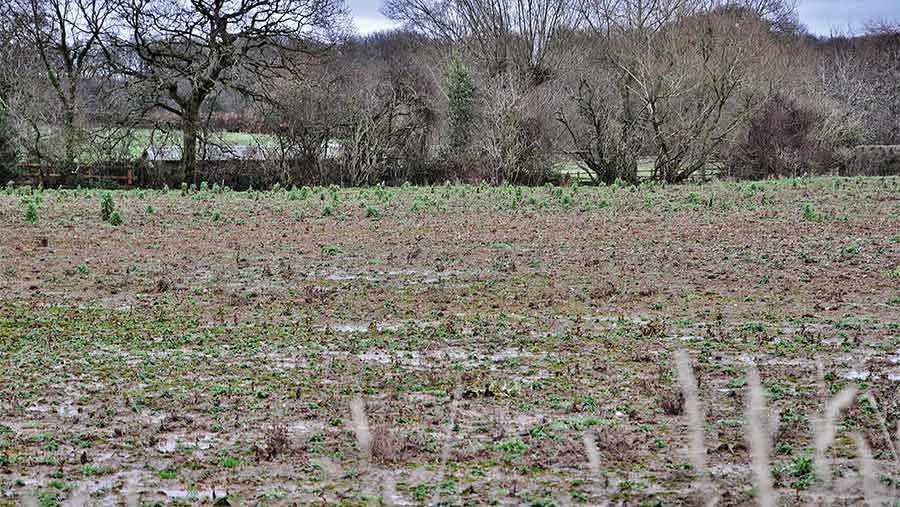Farmer blames HS2 failures for water-logged land
 Flooding on the HS2 site near Kenilworth © Simon Henley
Flooding on the HS2 site near Kenilworth © Simon Henley A Warwickshire arable farmer has accused contractors building the HS2 high-speed rail line of failing to understand the basics of land drainage after farmland he owns bordering excavation works near Kenilworth was repeatedly flooded.
Pictures that landowner David Jones posted on social media reveal flooded fields, broken land drains and overflowing retention ponds, with water pouring from the HS2 site into wildlife habitats.
See also: HS2 and other rail plans mean uncertainty for landowners
“What’s happening here is destructive to both the natural and agricultural environments,” Mr Jones said. “The basic principles and practices for land drainage on this site have been completely disregarded.
“I spoke with the HS2 field liaison people five years ago about drainage requirements. Using maps I prepared with local contractor DW Clark Drainage, we identified land on site perimeters which required draining.
“Plans for severance drainage were even listed as a project during phase one of HS2. Yet virtually every provision to provide effective severance drainage has so far been ignored.”
Retention Ponds
The construction of HS2 has required vast amounts of earth to be shifted in preparation for the railway.
Doing this has required the removal of woodland and vegetation which would naturally absorb rain and groundwater, and this has created additional surface water and subsequently high levels of run-off.

David Jones © Simon Henley
The provision for water management on the Kenilworth HS2 site involves the use of soil bunds and a network of channels to direct water from higher ground and soil embankments down to man-made silt-traps and retention ponds.
However, Mr Jones said: “The retention ponds have been constructed without any provision for overflow or outlet into the existing watercourses on neighbouring farmland.
“When it rains, the ponds simply overflow across natural boundaries, overwhelming the ditches and ponds, causing flooding in the fields.”
Inadequate provisions
Andrew Cotterill, chairman of the National Association of Agricultural Contractors (NAAC) drainage section, agreed that the drainage provisions were inadequate.
“Having visited sites with farmers affected by large infrastructure projects, I can clearly see considerable damage has been done to some areas of farmland,” he said.
“It appears that attempts to prevent flooding are simply not working.

One of David Jones’s fields which he says has been affected by the HS2 work © Simon Henley
“There is a knowledge gap between traditional land drainage contractors and large civil engineering companies.
“We are here to help and advise all parties involved. I would urge HS2 civil contractors to contact the NAAC for advice.”
Forward planning
Land agent Nick Barlow, of Barlow Associates, represents a number of Midlands-based farmers affected by HS2, including Mr Jones.
“In my experience, prior to works being undertaken, drainage would be installed to link into existing watercourses,” he said.
“From the start, HS2 has failed to make plans to deal with water problems created by its contractors.
“David Jones’s problem is one of a melee of issues I am dealing with, many of which also involve severance and compensation.
“There is simply not enough care being given to land or property owners.”
Duty of Care
Louise Staples is senior rural surveyor for the NFU who has been supporting members affected by HS2 in the Midlands for the past decade.
“From the beginning, the NFU has asked that farmers should be treated fairly and with a duty of care,” she said.
“Unfortunately, Mr Jones is one of a number of NFU members for whom problems with HS2 have gone far beyond general frustration.
“The effect of dealing with HS2 is creating mental health and stress issues for some farmers, which are frequently manifested by financial problems as their businesses are interrupted.
“We are currently meeting with directors of HS2 and government officials within the Department for Transport to raise the issues concerning landowners and discuss suitable solutions.”
HS2 ‘planning further measures’
In response to Mr Jones’ concerns, an HS2 spokesman explained that the group had acquired land in the area to build a road and construction compound that were needed to build the railway.
“We have been in regular communication with Mr Jones and are aware of some drainage issues affecting his land.
“After a recent visit to his farm, we agreed immediate actions, including using tankers to reduce the ponds to a safe level.
“We are planning further mitigation measures which will be installed as soon as the ground conditions allow safe working in those areas.”
The HS2 spokesman added that it was also finalising a payment to Mr Jones “so that he can install further drainage solutions”.
